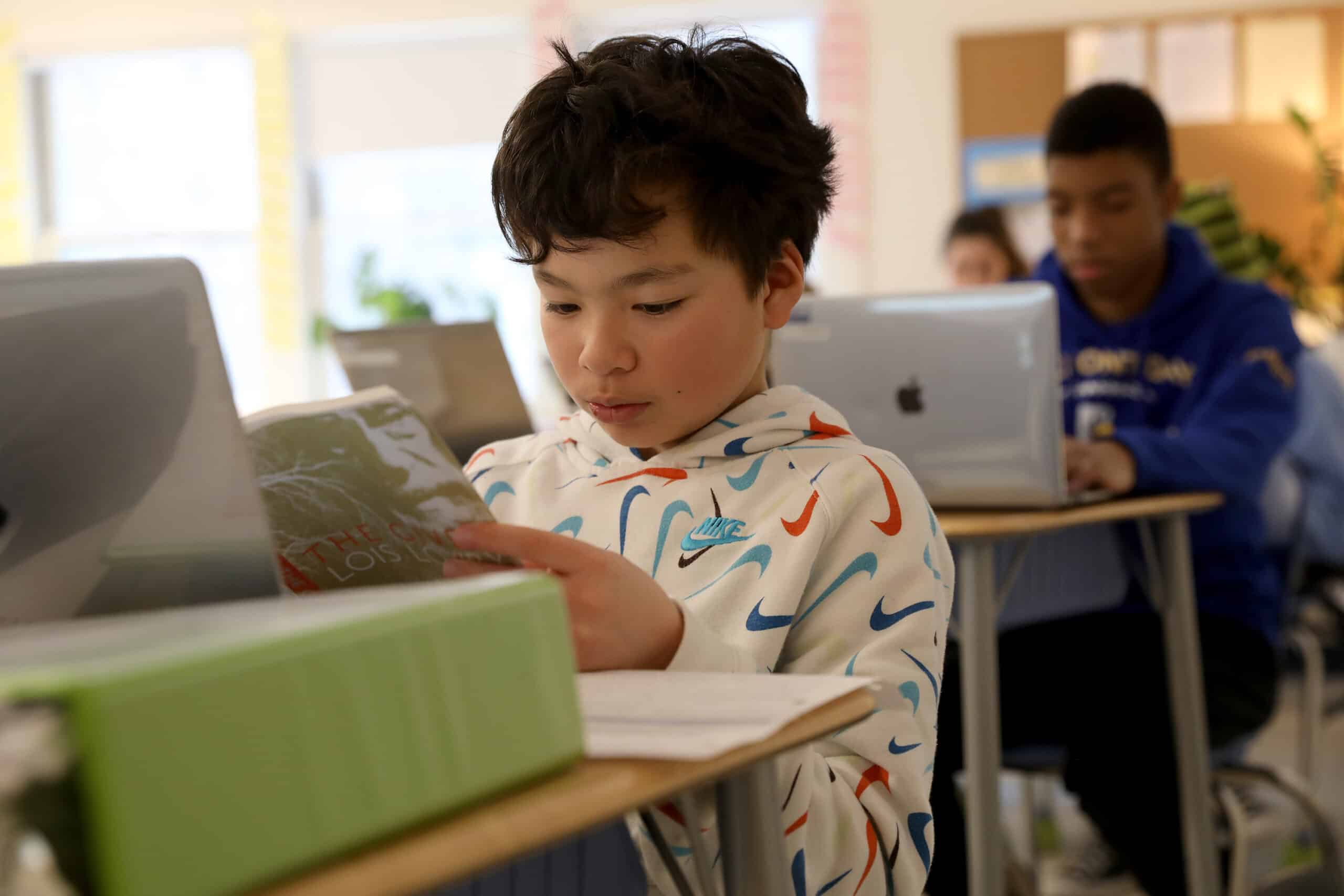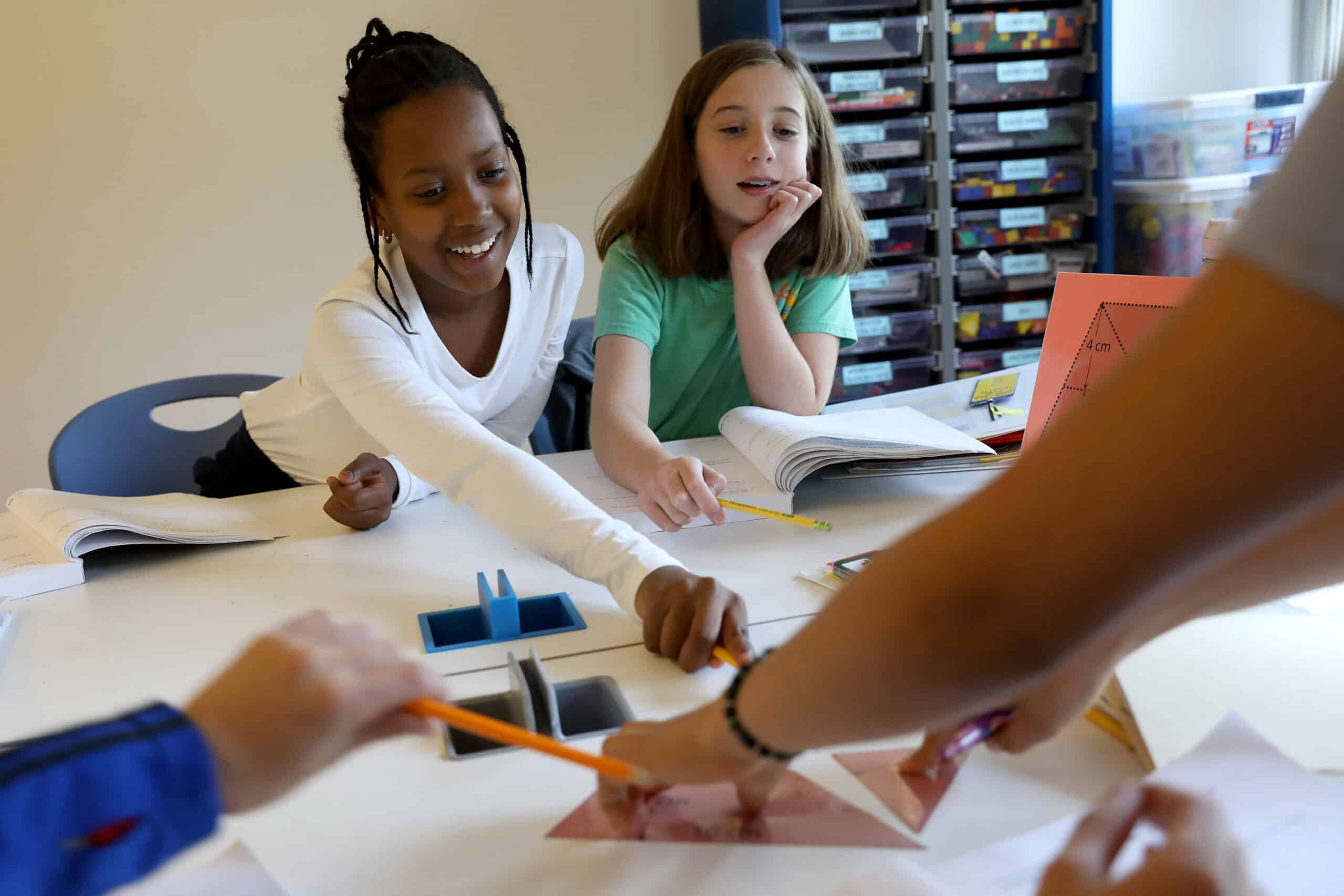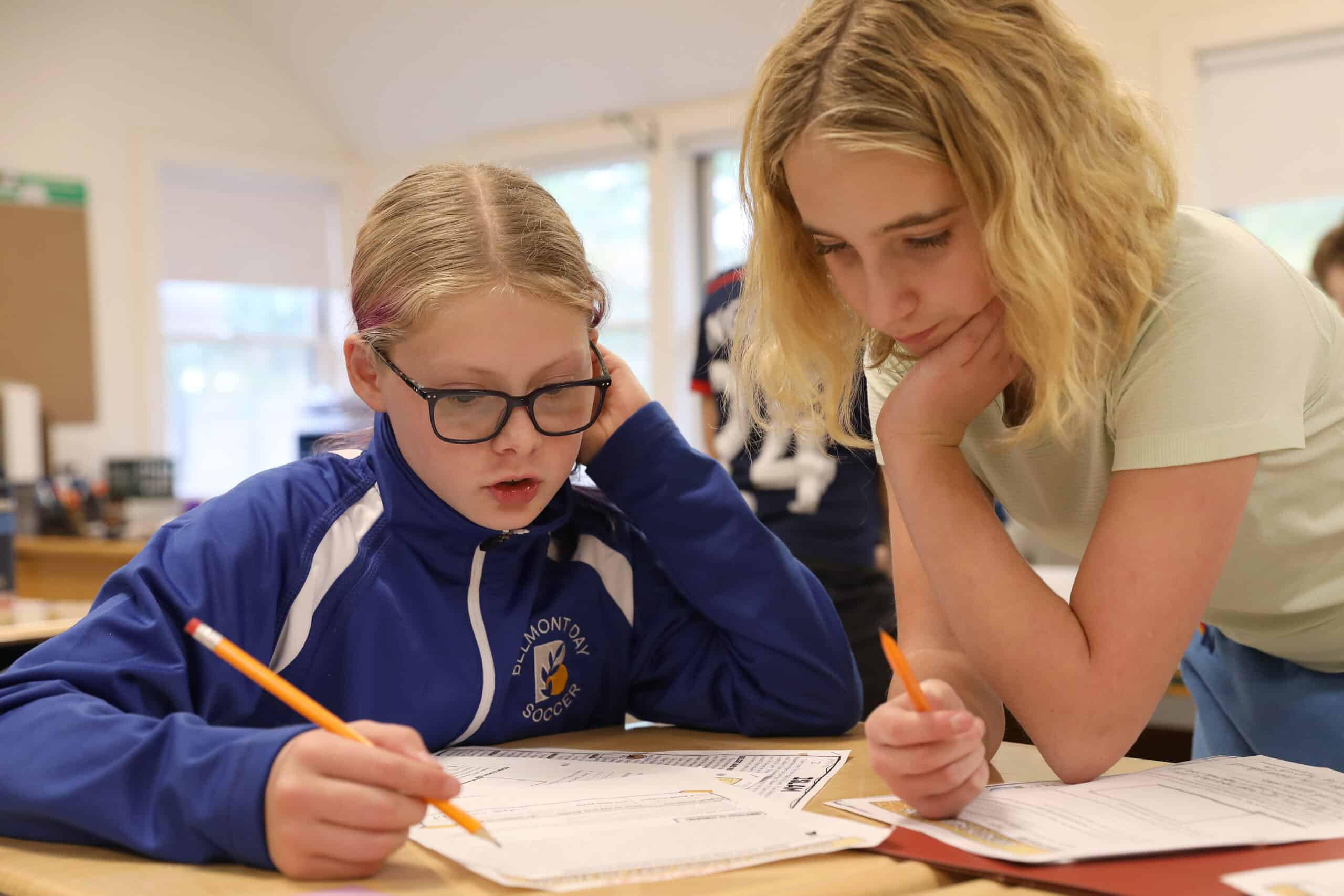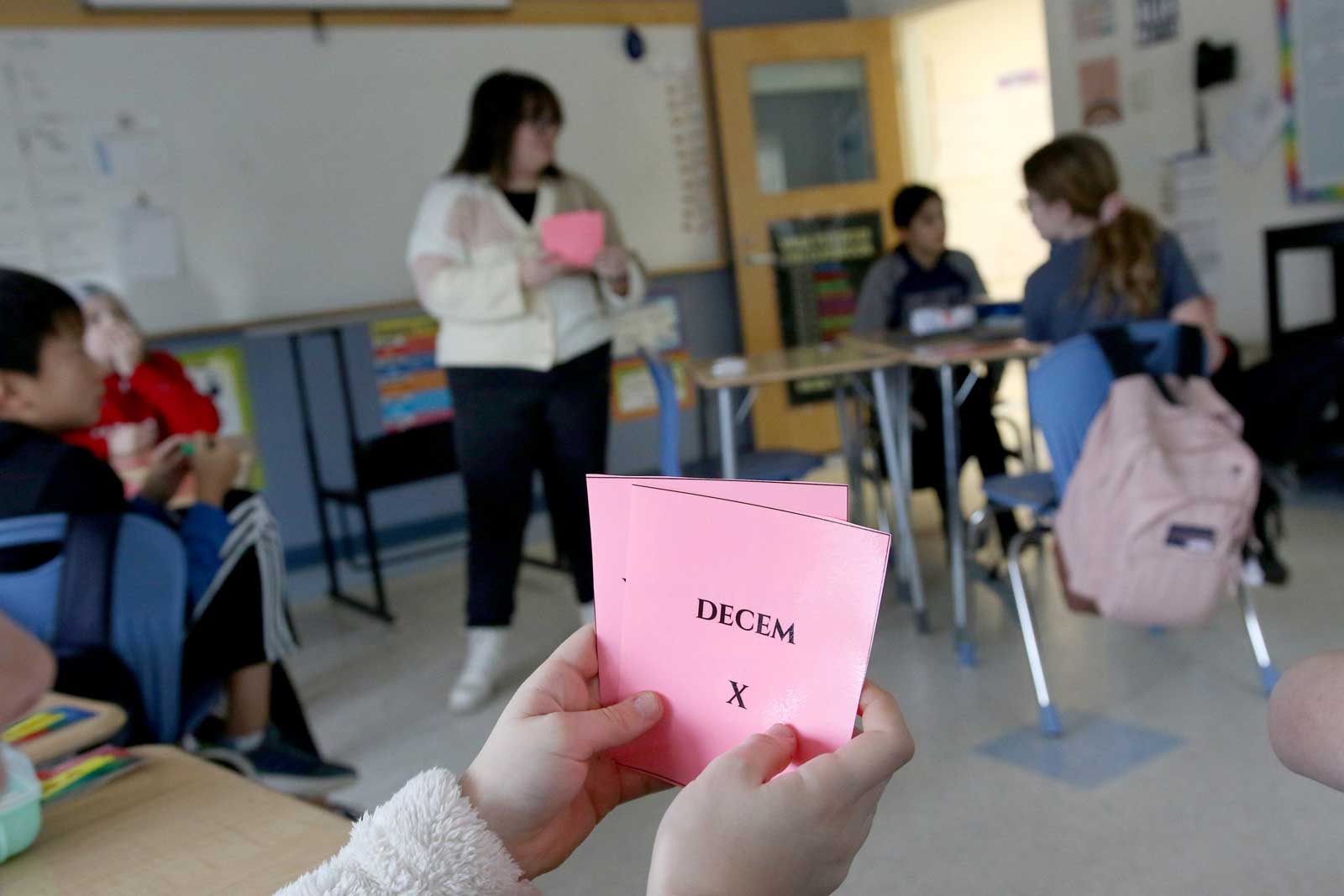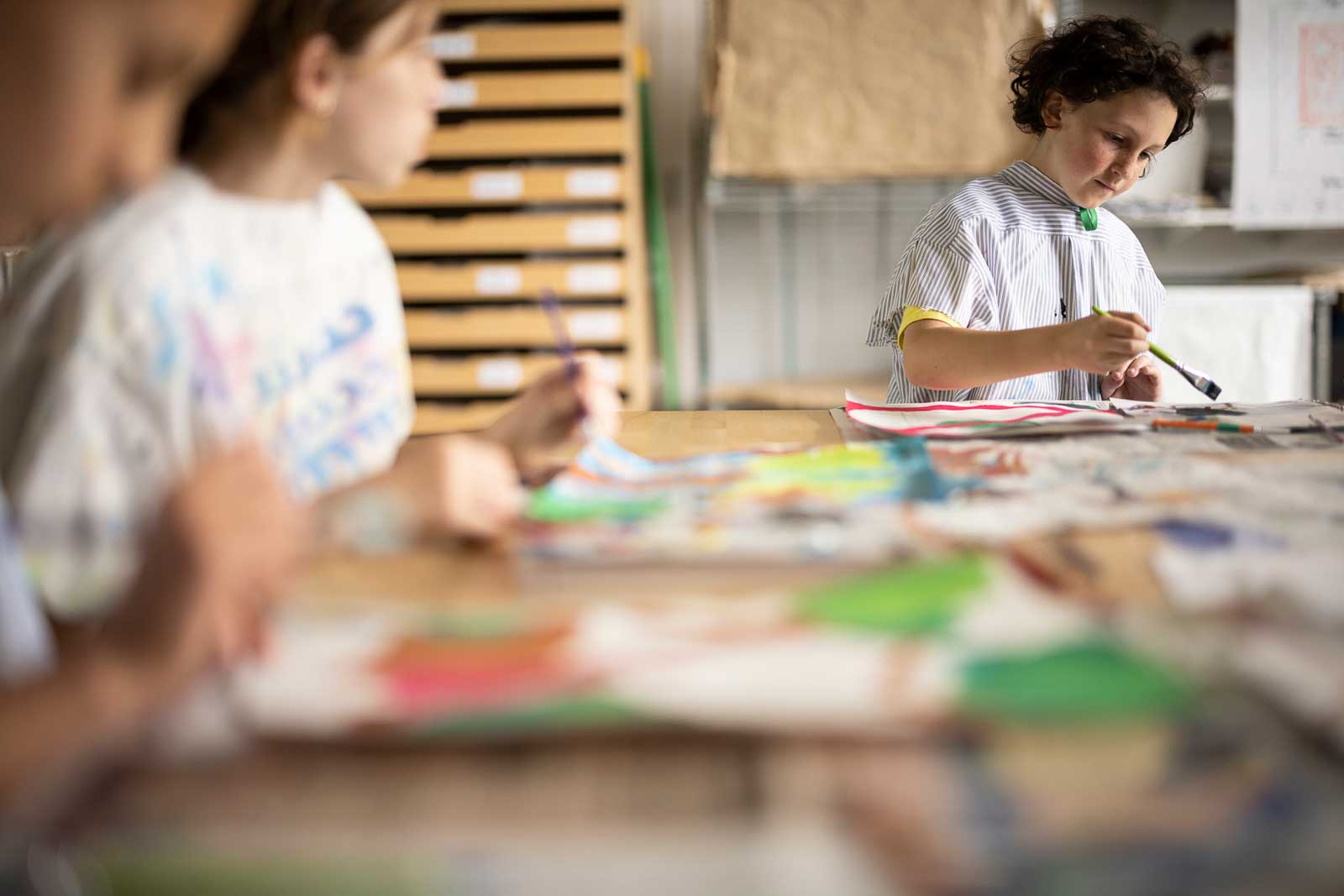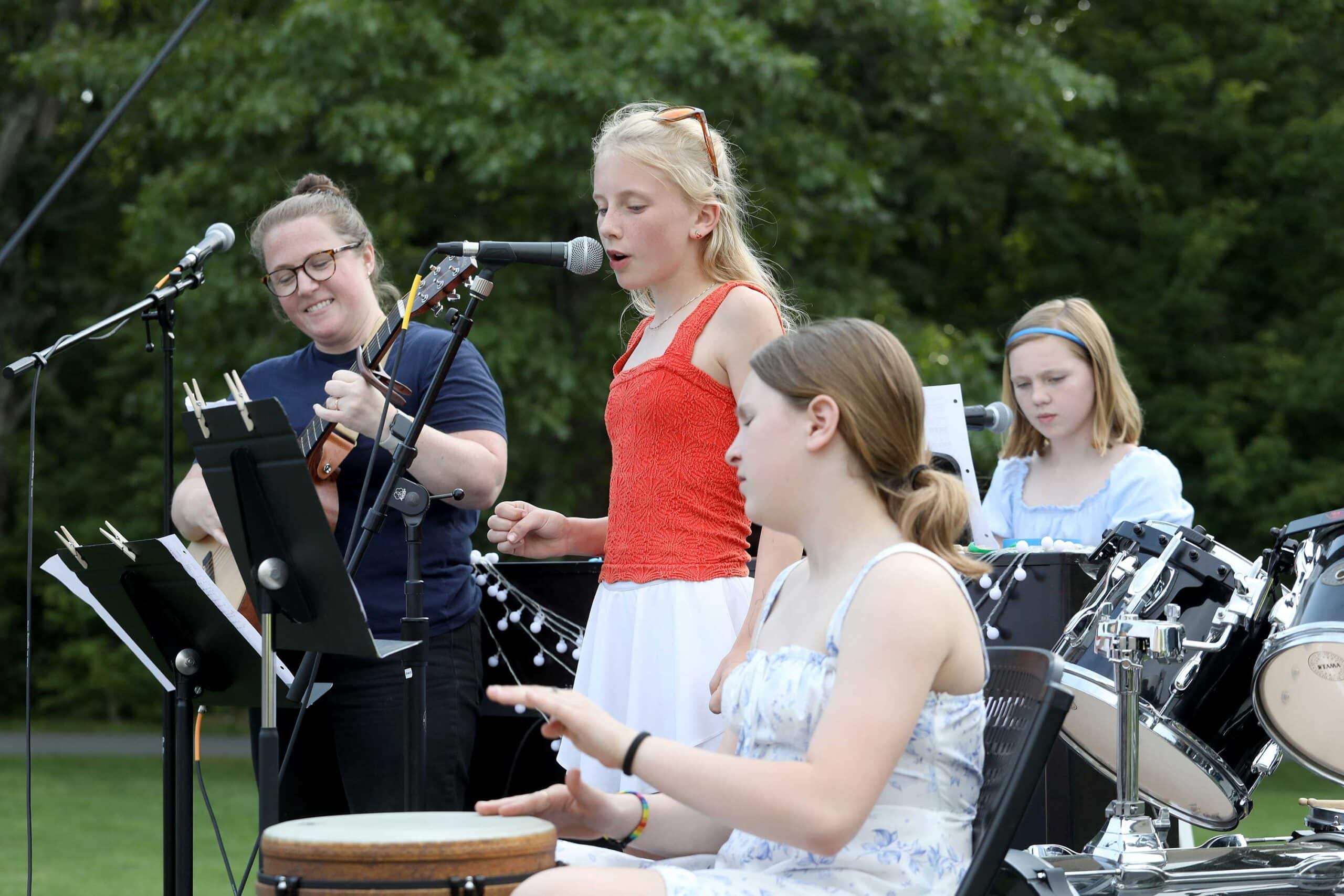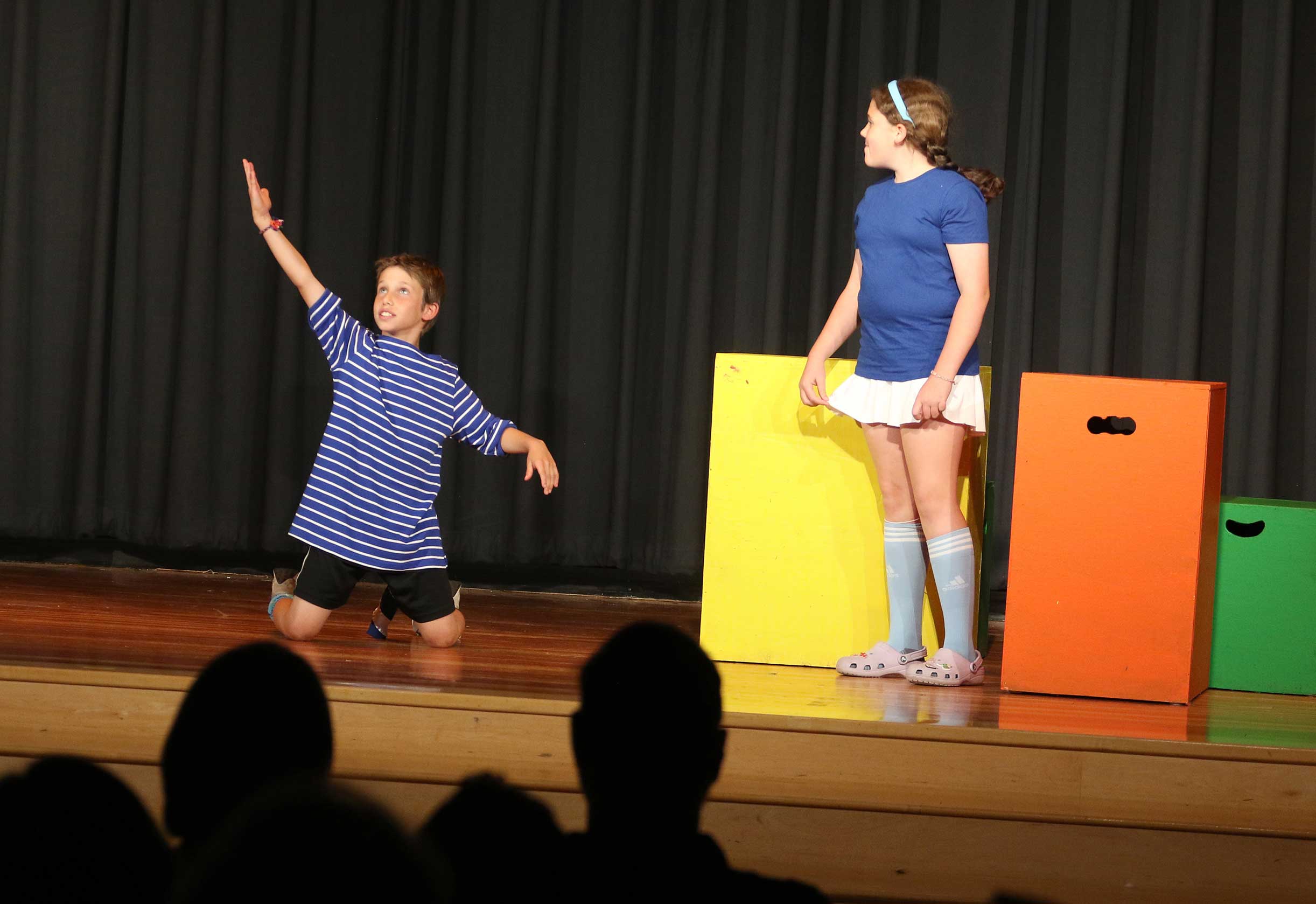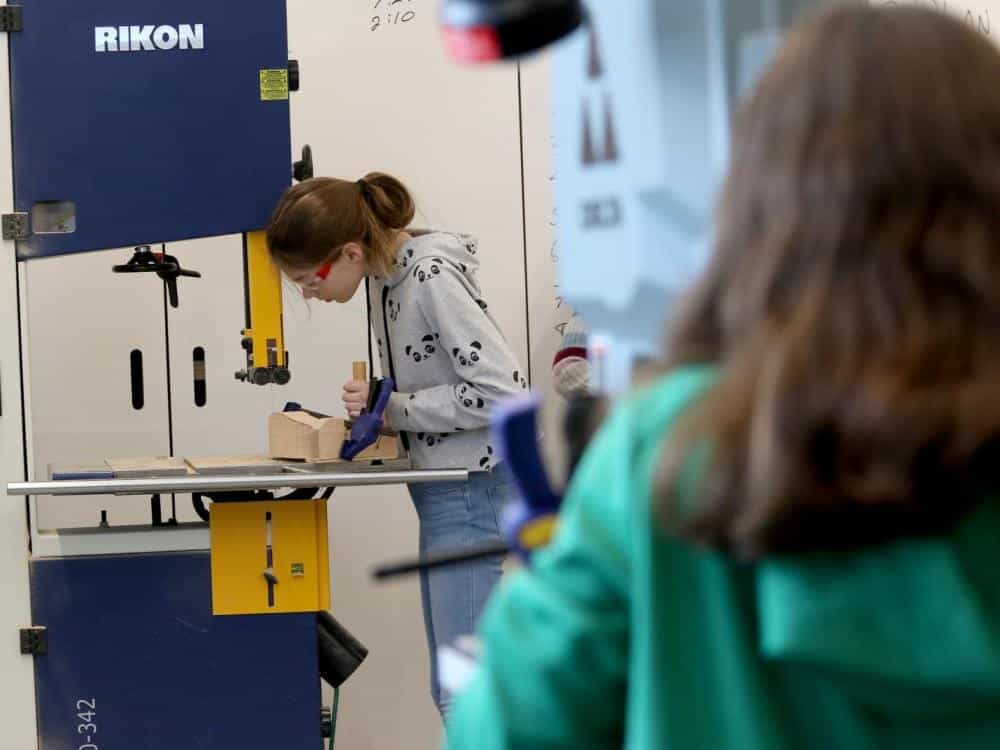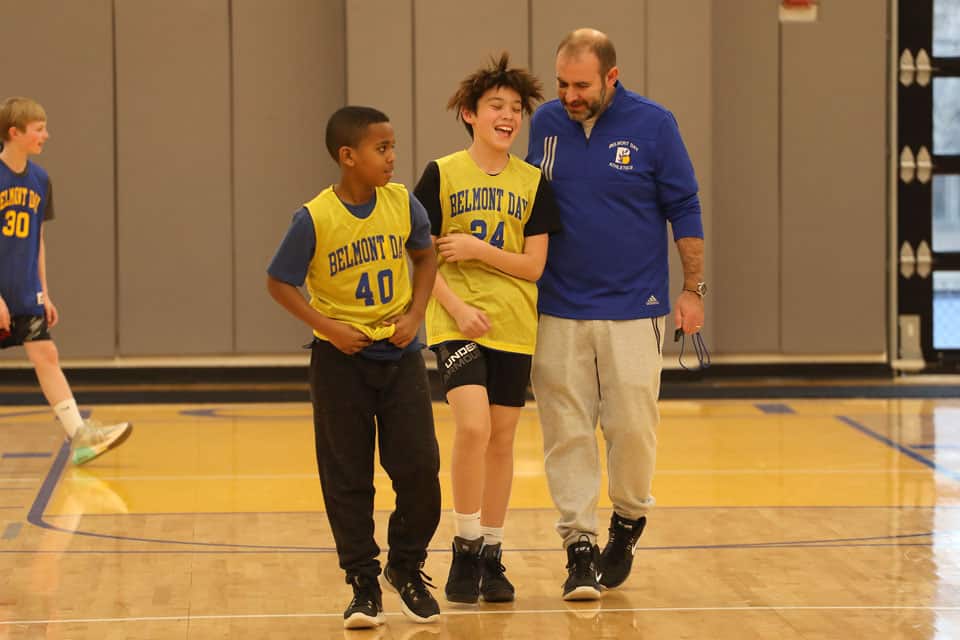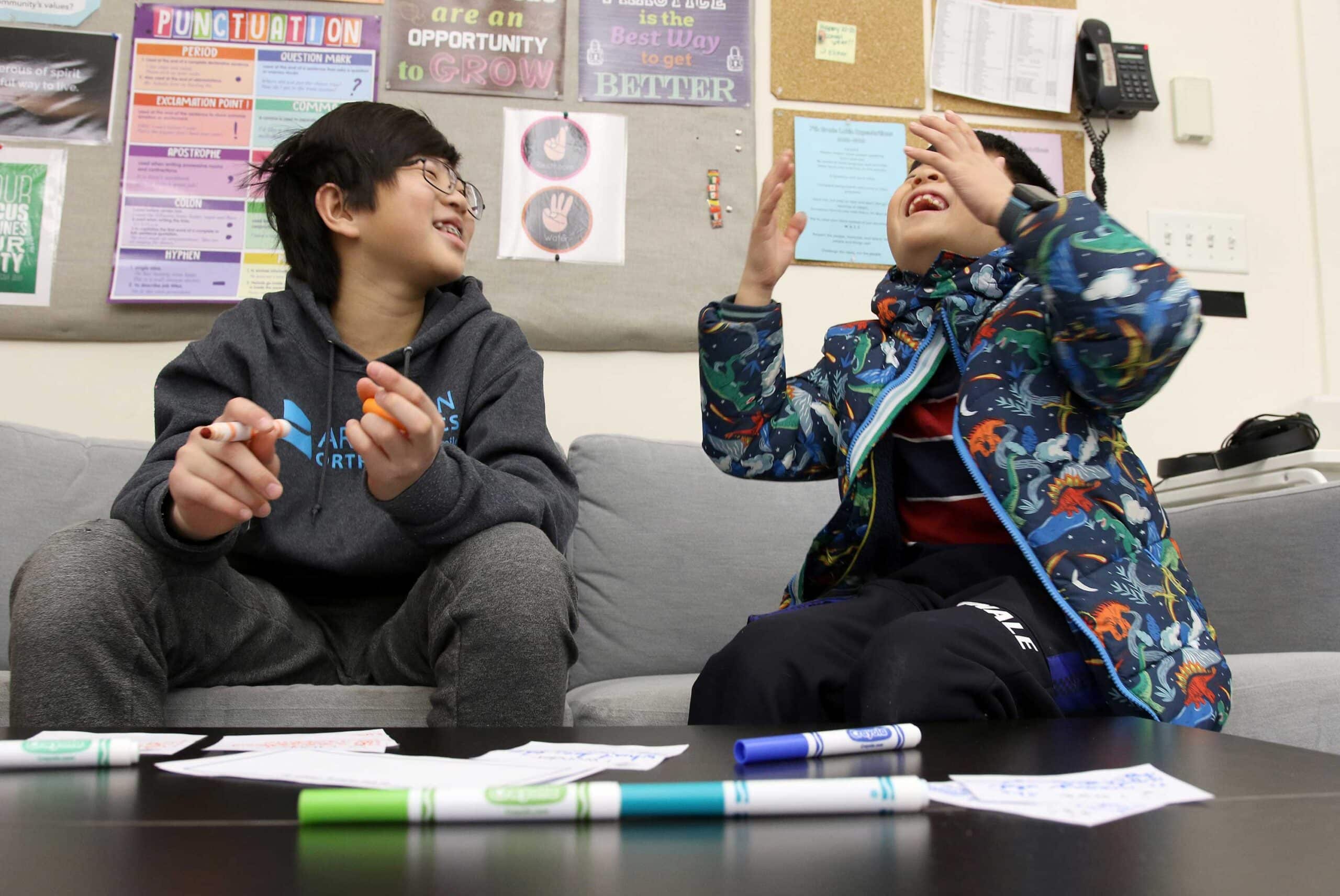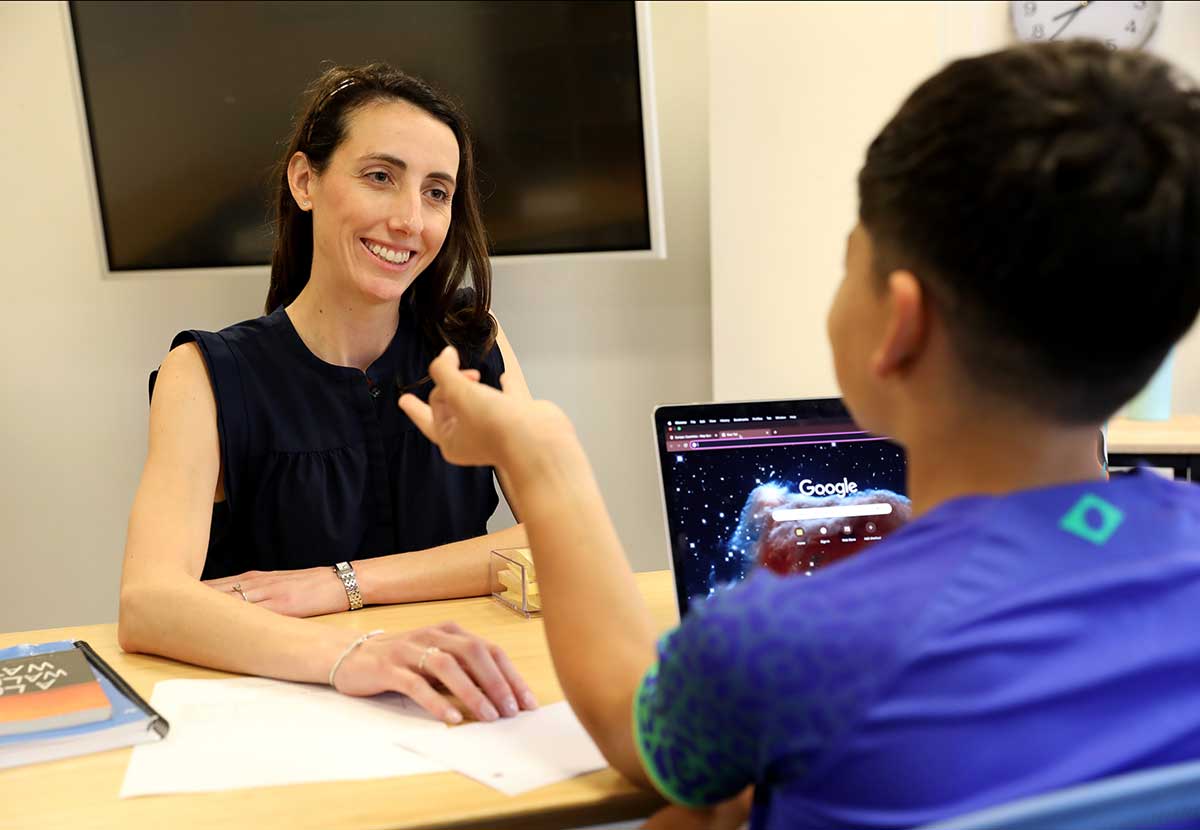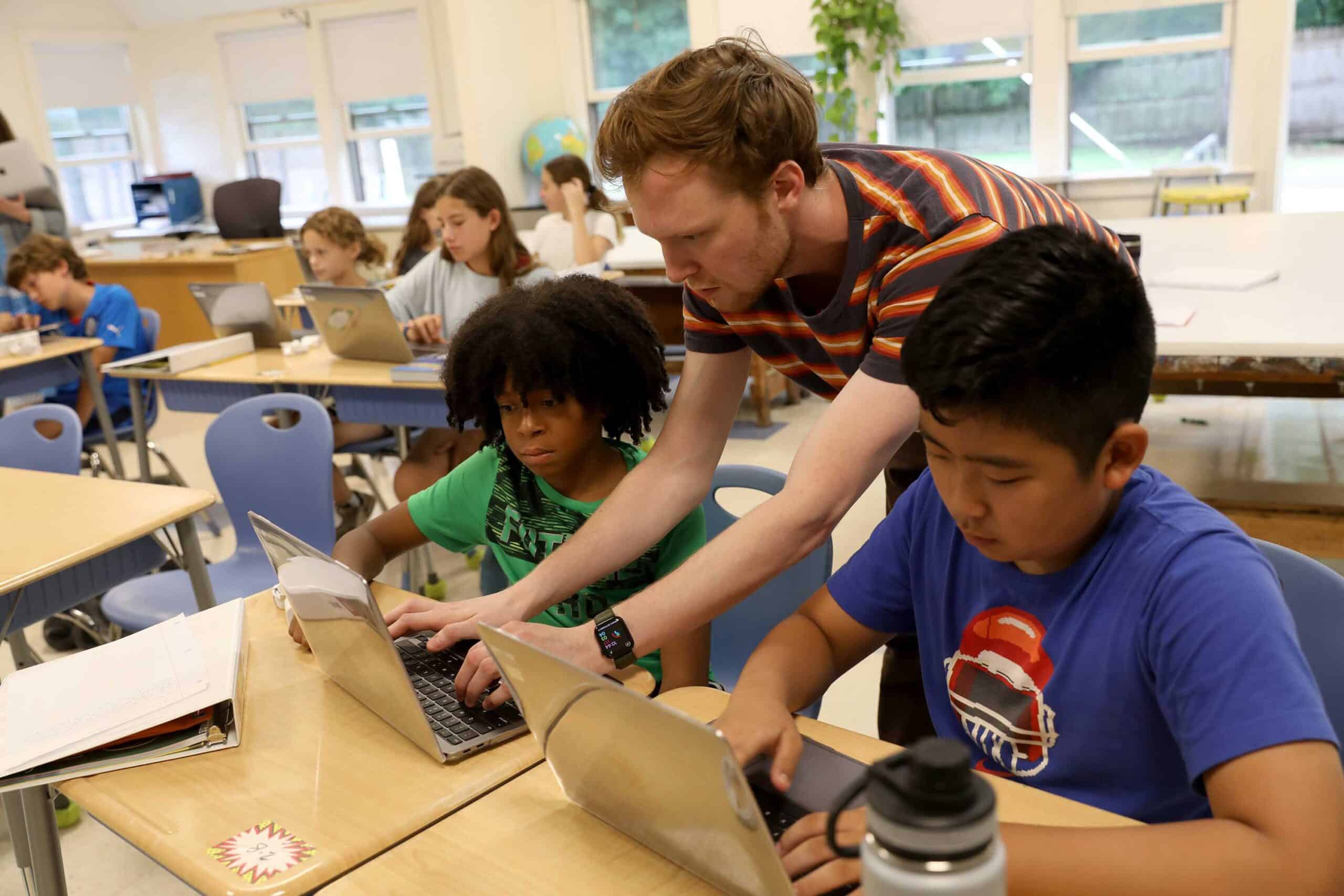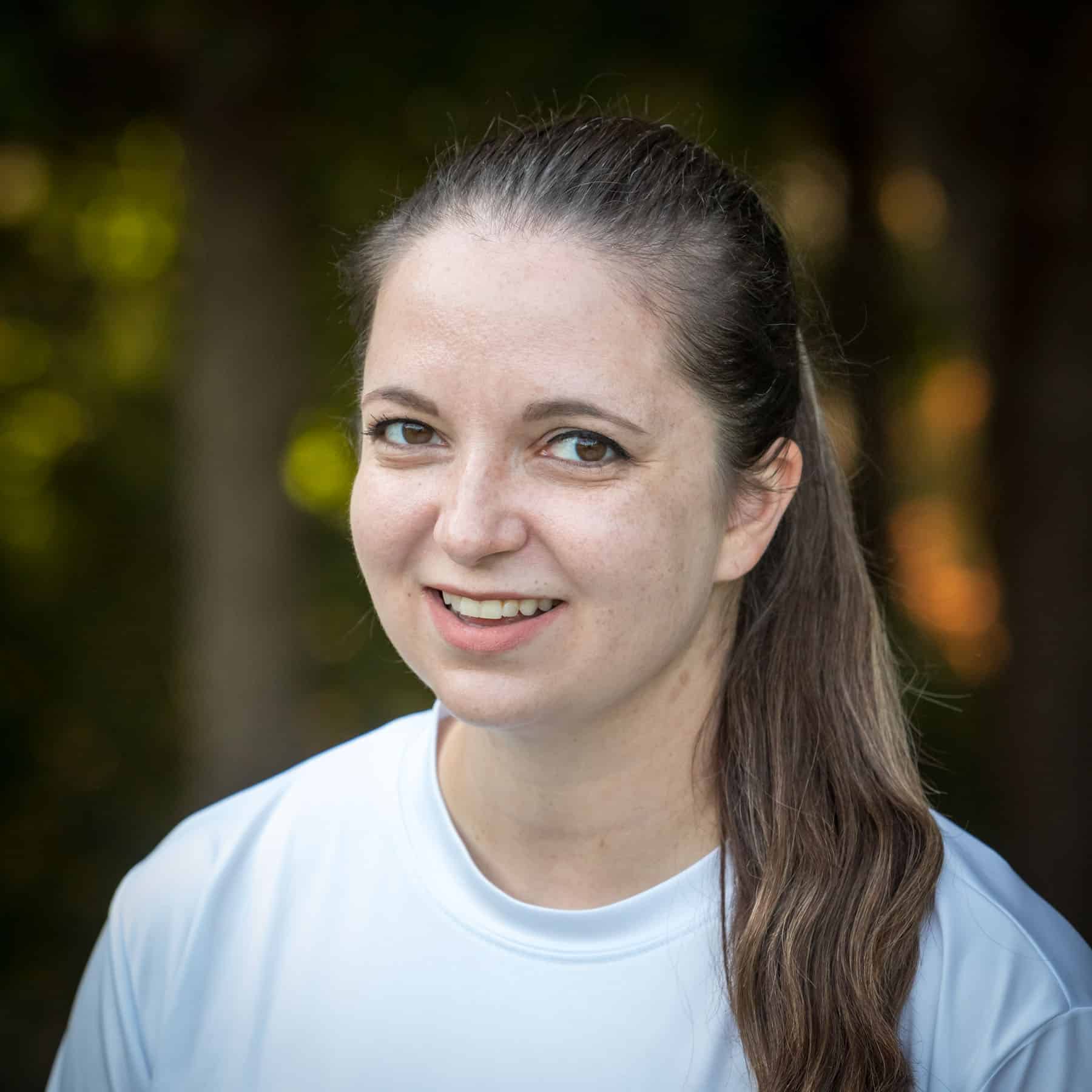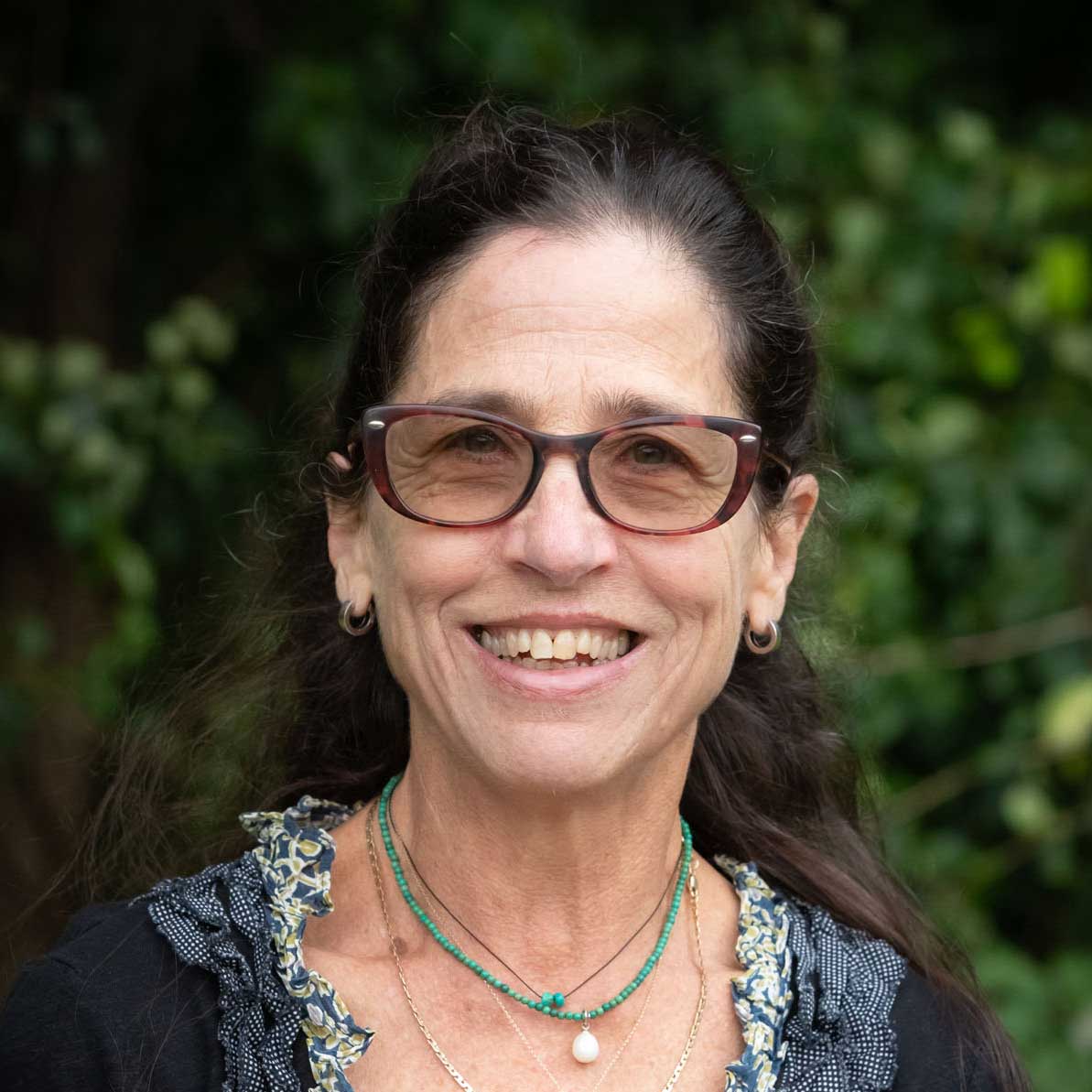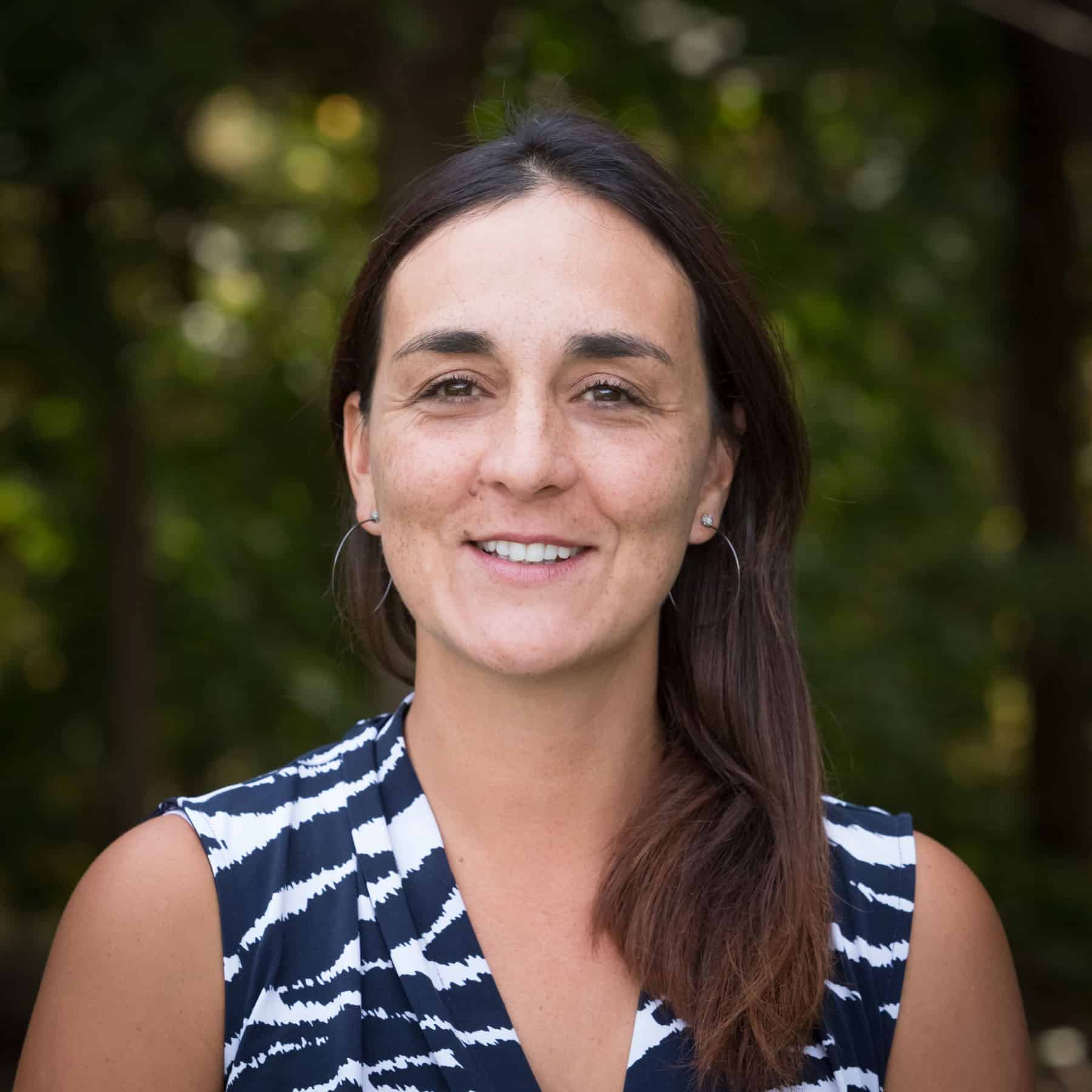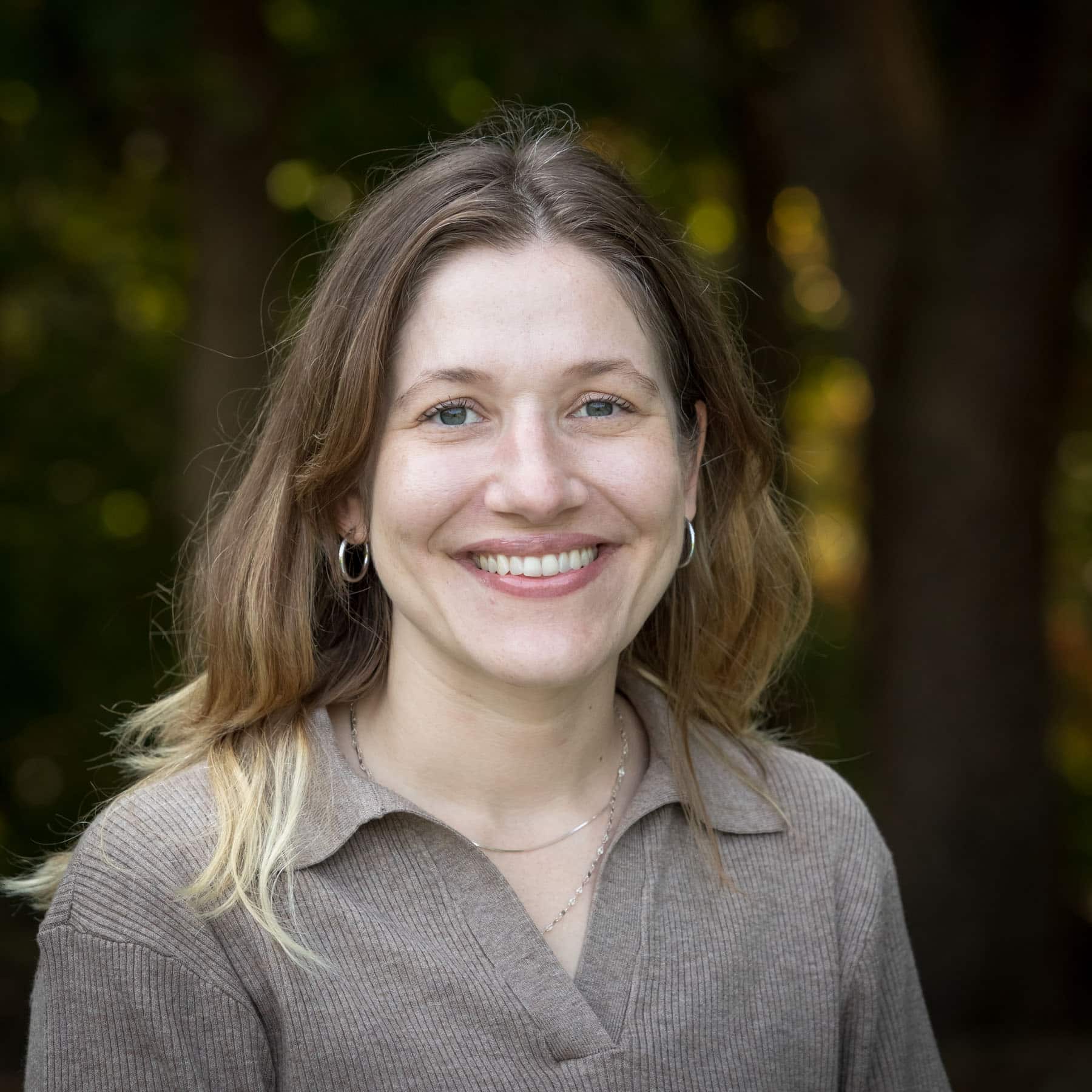Sixth grade is a remarkable time when students enter the realm of abstract thinking and where empathy is enhanced through exposure to important social justice topics. They participate in a robust arts program, participate in interscholastic athletics teams with older students, and spend their first year in an immersive language program. In the fall, sixth graders go off for a three-day experience at Thompson Island Outward Bound. In the spring, they examine the central issues associated with civil rights and human rights with a particular focus on the American civil rights movements of the 1950s and 1960s. Over the course of this important year of adolescence, students grow intellectually and physically. They are guided by teachers who appreciate the complexity, challenges, and enchanting opportunities of this age group.
Program Highlights
- Civil rights
- Research project on a world religion
- Kindergarten buddies
- Astronomy Night
- Solar cars
Specialist Time
- World language four times a week for 50 minutes
- Arts four times a week for 50 minutes (music, visual art, theater, woodworking, and technology)
- Athletics four times a week for 60 minutes

